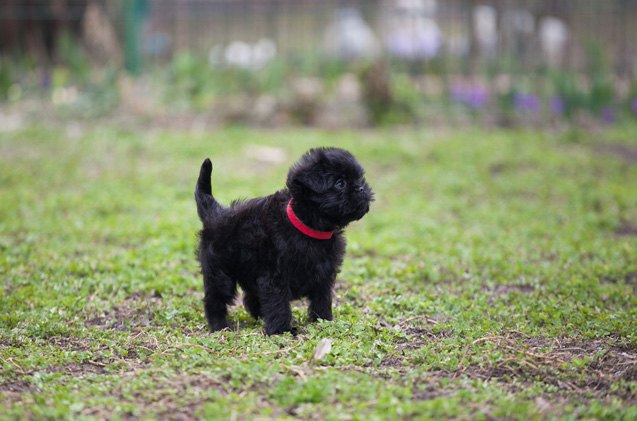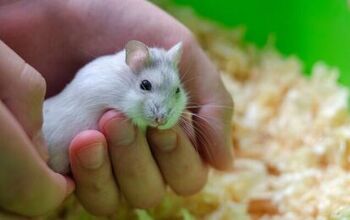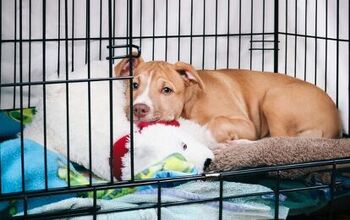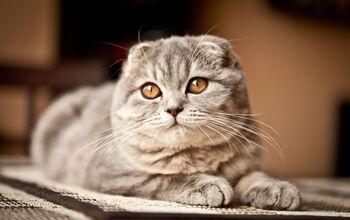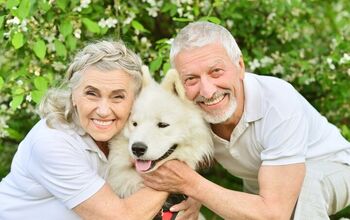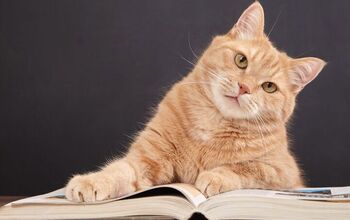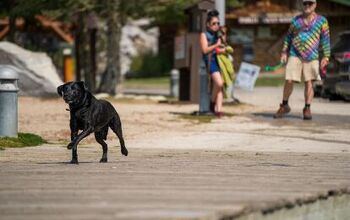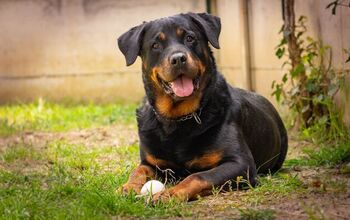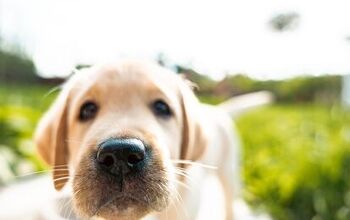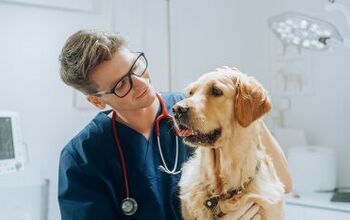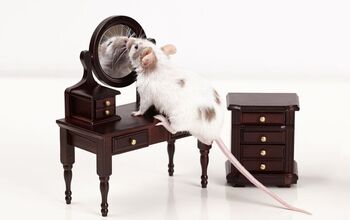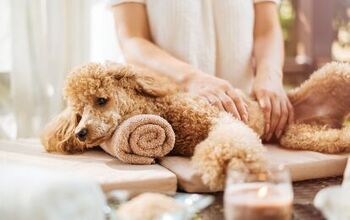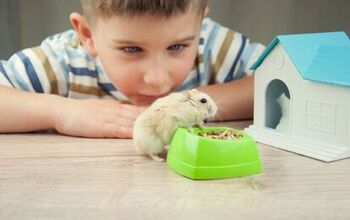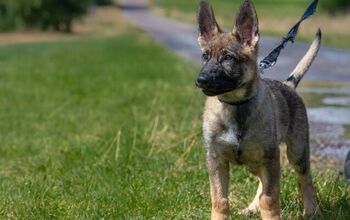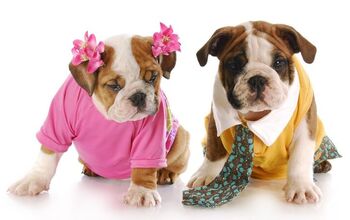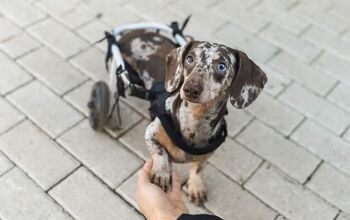Affenpug


About Affenpug
The happy, affectionate Affenpug is a great companion dog for singles, seniors or families with older children. He brings together the charming, lovable personality of the Pug with the curious, headstrong nature of the Affenpinscher for an alert, fun-loving dog who is quick to bond and ready to play the watchdog when something seems amiss. Because of the feisty nature of the Affenpinscher and his tendency to guard his food the Affenpug isn’t an ideal choice for families with young children who may test his limits. This dog loves to hang out with his people and while he’s not what you would call overly active, he’s happy to follow his pet parent around the house or snuggle in on the sofa at night. Both parent breeds are known to be prone to separation anxiety if left alone, so this dog is ideally suited to a home where a family member is present.
The bold little Affenpug brings together the charm of the Pug and the willful nature of the Affenpinscher.
The Affenpug is a Designer Dog and as such, likely dates back to the 1980’s or 1990’s when breeders first began crossing two or more pure-breds dogs with the goal of producing a pet that would be typically healthier, sometimes non-shedding, often smaller and even gentler than many of the more popular breeds. With the Affenpug, his pure-bred parents include the Pug and the Affenpinscher and while he himself dates back just 30 years or so, his lineage is rather impressive. The Pug’s history begins in China where he was bred as a pet for Chinese emperors before moving on to Tibet where he lived in monasteries as a favorite amongst Buddhist monks. It wasn’t until the 16th century that this little guy appeared in the courts of Europe where he again, was adored by royal figures, immortalized in paintings by Goya and essentially lived the high life before arriving to North America in the 19th century. Now when it comes to the Affenpinscher, this little guy has a more working-class background that begins with him hunting rats and vermin on the farms of Germany back in the 17th century. At the time he was a medium-sized dog who was later bred down to become a smaller, companion dog and while his unique features earned him the “Affen” name which means ape or monkey in German, they also made him a favorite of the wealthy. This little dog first arrived in North America in 1935 and in true Cinderella fashion, was awarded Best in Show at Westminster in 2013.
Because the American Kennel Club (AKC) is devoted to advocating for pure-bred dogs the cross-bred Affenpug doesn’t qualify to join their roster however his parent breeds are long-time members. The amiable Pug joined the “toy” group back in 1885 and is described as being charming, mischievous and loving while the spunky Affenpinscher became a member of their “toy” group more recently – 1936 – and is considered to be a confident, famously funny and fearless dig.
The Affenpug is a smaller, moderately energetic dog that will need a top-quality kibble specifically designed for his age, size and activity level. Always choose a nutrient-rich variety that is higher in protein and less-so fillers and carbohydrates that will leave him feeling hungry and wanting to over-eat. Which leads us to this pooch’s propensity toward obesity. When dogs are known to experience joint issues later in life, it’s important to establish and maintain an ideal weight so plan to feed him two to three smaller meals during the day versus allowing him to simply free-feed. Because this dog will have the flatter, brachycephalic face, eating can be a challenge and cause him to gulp air and become excessively flatulent (as well as end up with a messy face when wet food is involved). Seek out a food and water dish designed specifically for this type of dog with a tilt that allows him to easily access his meals.
The bold little Affenpug is a great companion dog that brings both the charm and alert natures of his parent breeds together for one spunky, entertaining little pooch.
While both parent breeds are smart and pick up commands quite quickly, a stubborn streak in both means this particular pooch may not always feel like obeying – so patience really will be a virtue with the Affenpug. Because house-breaking can be a challenge with small dogs, consider crate training with scheduled “potty breaks” throughout the day to help get him into a routine that works for both of you. With the Affenpinscher being a rather territorial dog, it’s important that your new pup be socialized starting at a very early age. Exposing him to new faces, sights, sounds and smells in a controlled and positive environment will help encourage him to be more comfortable and less reactive to other dogs and noisy kids. As with any dog, a firm consistent approach that reinforces the rules and establishes your expectations with rewards of treats and verbal praise will go a long way in netting the results you’re seeking. And because this is a bright, playful pooch, any training that allows him to show off his agility and breaks up the learning routine will be appreciated – fetching a ball or Frisbee is just one example.
Your Affenpug comes from two solid, but smaller dog breeds and when fully grown you can expect him to weigh somewhere between 9 and 12 pounds.
The bold little Affenpug is a great companion dog that brings both the charm and alert natures of his parent breeds together for one spunky, entertaining little pooch. He thrives on human companionship, loves to be involved in all family activities and is super alert, so makes a great watchdog that is not aggressive but is ready to bark whenever he deems it necessary. This dog can inherit some of the Affenpinscher’s territorial nature – particularly when food is involved – and in spite of socialization, isn’t an ideal pet for families with very young children or smaller animals. Headstrong, intelligent and affectionate, he does bond quickly with his human pack and can suffer from separation anxiety when left on his own for long periods. This is common with both parent breeds so is expected with the Affenpug and it can result in destructive behaviors such as chewing, incessant barking and relieving themselves in the house. An ideal home is one where a family member is home during the day or scheduled dog walking services are used. Providing him with puzzle games and companion toys will help keep him busy and alleviate some of the boredom if he is the only pet in the house.
As a Designer Dog, its fair to say your new pup may be free from many of the health issues that plague his two parent breeds however… it’s always important to familiarize yourself with what your new pup could inherit down the line. In the case of the Affenpug this can include respiratory issues due to his brachycephalic facial structure, cataracts and joint issues such as patellar luxation and hip dysplasia. If your pooch inherits the heavier facial folds of the Pug, skin infections can also present and while not necessarily a serious health issue, the Pug side of this little guy is renowned for his flatulence due to gulping air as he eats. While this list of potential health issues may seem exhaustive, don’t be overly concerned; it’s equally possible that your Affenpug may lead a long and healthy life free of any issues.
The Affenpug is a small sized dog that is moderately active and with regular exercise, a diet designed for his age, size and energy level as well as annual check-ups with your vet to monitor his health, you can expect he will live a long, healthy life of between 12 and 14 years.
The Affenpug comes from two playful but not necessarily overly-active breeds. Daily walks will be sufficient to keep him physically fit, while some fun, interactive playtime including agility exercises such as tossing a ball will be an ideal way to meet his need for mental stimulation. This little guy requires early socialization before you consider taking him to dog parks as he can become yappy and annoying to larger dogs, aggressive toward smaller dogs and with a terrier side to him, prone to chasing other animals.
The fun-loving Affenpug thrives on human companionship.
The Affenpug is also known as the Affen Pug and in spite of his Designer breed status that means he will never make the American Kennel Club’s roster of purebred dogs, he is recognized by the Dog Registry of America, Inc. (DRA).
The Affenpug will typically inherit the longer, coarse, wiry coat of the low-shedding Affenpinscher which is great news because the Pug side of this little dog is a seriously heavy shedder. In spite of the fact he will shed less, the longer coat means your Affenpug will need to be brushed 3 to 4 times a week to prevent tangles and matting, with periodic clipping necessary to keep him looking his best. As he will likely inherit some of the facial folds common with the Pug, you will need to be diligent in keeping creases clean and dry to prevent smelly yeast infections – which is a known problem with heavy wrinkling. Because he will also almost certainly bring the “moustache” of the Affenpinscher, plan a quick face wash after meals to remove any food debris. With floppy eared dogs prone to infections due to the lack of air movement under the ear flap, a weekly inspection and quick clean with a damp cotton ball should also be part of his grooming regimen.
Your new Affenpug puppy will likely inherit both the affectionate nature of the Pug and the feisty, territorial traits of the Affenpinscher. As a result, you’ll want to get him socialized early on and this can be as simple as gentle handling that exposes him to new sights and smells as well as different faces and other animals. Done in a positive manner, this will help build his confidence and discourage reactive, aggressive behaviors when he gets older. As both parent breeds have a known stubborn streak, obedience training should begin while he is young – 8 to 12 weeks – and is more likely to listen and respond to commands. Because housebreaking small dogs can be a challenge, begin the process early and consider crating to help with the establishment of a routine. And with potential joint issues a concern as this dog ages, it’s important that playtime not over-exert his tiny limbs and cause injuries that can become more serious down the line.

Sharing space with three seriously judgy Schnoodles and a feline who prefers to be left alone. #LivingMyBestLife
More by Mary Simpson



